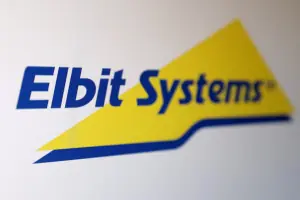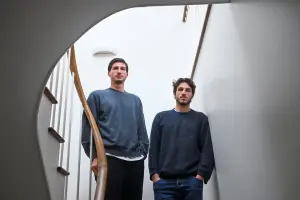Pakistan vying for a place in ‘booming' cloud kitchens market
6 min readAs food delivery apps boom across the globe – Uber Eats, foodpanda, and Deliveroo have become household names – it’s the phenomenon of cloud kitchens that’s going to propel their popularity into the future.
Market research company Euromonitor estimates they will represent a $1-trillion opportunity by 2030. Dubai already has some 400 food brands operating via 80 cloud kitchens, and Pakistan is looking to cash in as well.
The idea is not entirely new or ground-breaking: a cloud kitchen, also known as a dark/ghost/virtual kitchen, is a commercial space kitted out with cooking equipment, fridges and stoves, whose sole purpose is to fulfil online food delivery orders. There is no storefront, and no dine-in or take away option. In fact, customers often have no idea that if they, for instance, placed an online order for a pizza from an established brand, their food could well be coming from a small, unmarked commercial kitchen located in their neighbourhood.
An established restaurant could use cloud kitchens to expand their delivery reach, but cloud kitchens have also given birth to virtual restaurants that exist entirely online.
There are many advantages to this model: it’s cheaper and less risky than opening a traditional restaurant, with minimal overheads and running costs. And it allows food businesses to experiment with new menus.
Dubai-based Kitopi is the biggest cloud kitchen operator in the Middle East. Working with 200 food businesses, it operates some 60+ cloud kitchens and last year raised $415 million in a round led by SoftBank. Some reports say it is valued at $1 billion, making it possibly the third unicorn in the Arab world.
It’s also “the first unicorn to be born out of the food tech space in the Arab world, and is a statement to how fast this industry has grown in the region in just a few short years,” said a report by Foodics, also based in Dubai, which provides tech solutions to cloud kitchens.
The report noted that “due to Dubai being viewed as a smaller, denser, easier to access, westernized market with a nearly 90% expatriate population – entrepreneurs seem to feel more comfortable to build a business and showcase proof of concept in Dubai first”.
Food & beverage firm AWJ Investments last year launched a dark kitchen in the Dubai Silicon Oasis free zone called DKitchen – among some of its standout features is an automated contactless dispatching model. And SOL Properties recently launched 29 cloud kitchens for rent in Dubai’s Business Bay.
Some experts say the popularity of cloud kitchens goes hand in hand with people ordering more food online thanks to COVID. A report by Invest in Dubai states that since the pandemic, online food ordering has doubled in the UAE.
But Mohsin Qureshi, Foodics Pakistan GM, told Business Recorder cloud kitchens would have become popular regardless of the pandemic.
“I would not agree with that…it’s been a natural progression. Companies have been planning cloud kitchens even before the pandemic.”
He said not only do they offer advantages to businesses, but it also means cheaper options for customers.
This is because “instead of renting a restaurant space for say $5,000 a month they can rent a kitchen for maybe $1,000. Plus, you need fewer employees and no one working front of house so the cost of food for the consumer is coming down as well”.
Qureshi estimates the restaurant industry in Pakistan is worth $8 billion a year. This, coupled with the ever-increasing smartphone penetration rate, means there is endless potential for cloud kitchens.
“Instead of new entrepreneurs coming in and spending Rs5 million to set up a restaurant they can start from a cloud kitchen – or kitchen as a service – to test their products and then see if they want to expand”.
He said this will lead to the advent of new cuisines being introduced to the local market, as there is room for much innovation.
Interestingly, cloud kitchens also mean Pakistani brands can start selling their goods in other countries. Qureshi said OPTP is already doing this in Dubai and believes there is a huge market for Pakistani brands in the region, should more of them decide to follow suit.
In Pakistan, Foodics is already working with local players like Kitchen Collabs, Lettus Kitchens – which raised $250,000 in angel funding last year in a move that valued it at $3m – and Big Chefs.
They are by no means the only companies operating in this space though. There’s of course Delivery Hero-owned foodpanda - which is embracing the concept via two different models- plus Hotpod and Retail & Food Concepts.
Muhammad Ahsan Ahmed, who has previously worked at Dominoes and IHOP, founded Retail&Food, which has 3 cloud kitchens in Karachi, with another 3 in the pipeline. He told Business Recorder the food delivery business in Pakistan is currently worth about $500 million, and he expects it “to grow to at least $5bn to $10bn in the next five to seven years alone.”
He echoed Qureshi’s thoughts in that this isn’t so much due to the pandemic but a general “behavioural shift in the market”.
“Twenty years ago, I remember my elders being absolutely averse to bringing outside food but now it has become much more acceptable,” he said. “The current generation values its time. They want to be doing other things.
“Companies that have a good distribution network will reap the benefit of this.”
Arsalan Mehmood, Head of Commercial Innovation at foodpanda, said the key to the success of cloud kitchen is that it is “data driven”. Data allows the company to see which neighbourhoods have a “cuisine gap” that needs to be filled.
He was talking from a set-up in Karachi’s Gulistan-e-Jauhar where a narrow building is home to some six commercial kitchens. Brands operating within it include popular names like Del Frio and Happy Donuts while Kababjee’s is soon going to be renting space for its new pizza offering.
The concept is also helping brands cross over to other cities within Pakistan, said Mehmood, adding that the risk of using foodpanda’s cloud kitchen is minimal as there is no upfront cost – it provides the space and businesses pay it a percentage of their sales. They can “plug out” at any time if they are not doing well.
Meanwhile, foodpanda is also operating another model that makes use of cloud kitchens – it hires them to run its own food brands.
Operating cloud kitchens aren’t without challenges. Ahmed told Business Recorder the biggest issue has been to “attract the talent to work for a hidden company”.
“If you want a delivery driver to join you and they don’t see you being present in a front face fashion, he might shy away from working for you”.
One concern is whether the customer will accept a virtual brand that has no physical presence, and another is that marketing is more expensive than for traditional food outlets.
“You will need a lot of cash up front to get someone to know that you exist. You need to have deep pockets,” he said. “The model is not going to be profitable immediately for this reason.”
The story was originally published in Business Recorder on February 28. 2022.
























Comments are closed on this story.